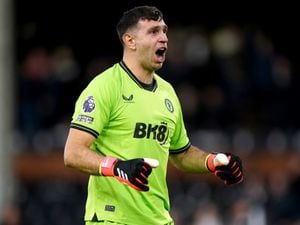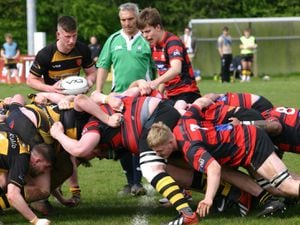POLL: To buy or not to buy... which of our three clubs is the question?
Which West Midlands club would present the most attractive option to potential buyers?
ALBION
One of best run clubs in the Premier League but how much further could you take the Baggies?
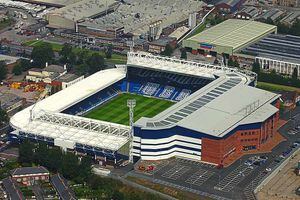
Looking at the balance sheet leaves you in no doubt Albion's reputation as one of the best-run clubs in the Premier League is more than deserved.
If you were assessing their financial health, the figures are exactly what you want to see from a club of their size, with little in either short-term or long-term liabilities.
Yet the problem for anyone looking to invest in Albion is just how much further you would be able to take them. Whereas Wolves being in the Championship means there is room to grow, the Baggies' place in the Premier League means the ceiling is much lower, with the revenues being far higher and the chance to get a return on your investment reduced.
If you look at Albion's most recent accounts, their turnover was £87million, of which £65million will have come in the shape of TV money.
That leaves around £22million or thereabouts being generated by merchandise and ticket sales, together with sponsorship deals, a relatively modest amount when it comes to a Premier League club.
With The Hawthorns being full or close to full for most matches, an investor must ask themselves how much more room there is for growth. The quoted price of £150million for the club also seems a little on the high side when you compare it to turnover.
Of course, there is also a new TV deal to be factored in next summer, but while that will undoubtedly boost income, much of the cash tends to be soaked up by players' wages.
Like many Premier League clubs on the market, Albion are hamstrung by the fact there are not so many investors who can afford to spend £150million on a club, while the FFP regulations rule out the kind of rapid investment once seen at Chelsea and Manchester City.
Verdict: If you had the money and resources to invest in a mid-range Premier League club, Albion should be near the top of your list, though there might be concerns over just how much further you could take them.
VILLA
A club with worldwide brand but would Randy Lerner want to get his £220m in loans back?
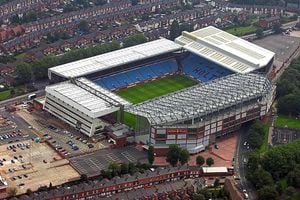
With their rich history, Villa might initially appear an attractive proposition for an investor who sees the potential of promoting further what is already a worldwide brand.
Yet a look at the balance sheet will tell them a different story.
Their turnover of £110million is significantly more than Albion but the problems appear when it comes to assessing the club's liabilities.
Villa presently owe £220million to owner Randy Lerner and this pushes the purchase price far higher than that needed to buy the Baggies.
Even if Lerner is prepared to write-off the majority of the debt, it would still require someone with very large pockets to first buy the club and then make the investment required for them to grow and push up the league.
Villa have been in the Premier League for a long time but have suffered from the fact they have not always made the best player signings. They have paid out significant sums for mediocre players who have commanded big wages and the impact that has had on the balance sheet has limited what they have tried to do elsewhere.
In hindsight, they would have been better following a model closer to Albion's, where players have been recruited for far less risky sums.
Anyone looking to buy Villa must be prepared to take a fairly hefty hit in the pocket, not only in purchase price but the money invested after.
There are undoubted positives, such as the stadium, and plenty of room for growth but it is going to take a lot of money.
Ideally, you are looking for someone with the financial might who also has a passion for the game and the club, there are not too many investors like that around.
Verdict: Villa have potential, no question, but the sums involved mean of all three clubs, they are the least attractive.
WOLVES:
Championship status makes Wolves attractive with lower price and potential of Premier League cash.
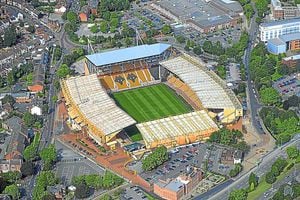
The fact Wolves are in the Championship makes them an attractive proposition for many investors, largely because it makes them cheaper.
Quite simply, there are nowhere near the type of revenues available in the second tier as there are in the Premier League and it means any price a seller can demand is much lower too. As a club, there are a number of other factors about Wolves which would interest a potential buyer.
With a turnover of £32million, they are one of the biggest in the Championship, while they also own their stadium and training ground. On top of that, they have a solid playing squad with a few standout players who are contracted for a decent period of time.
It means anyone looking to invest in Wolves can see there are already strong foundations in place and that lowers the amount of investment required once the club has been purchased. Perhaps most tellingly, when it comes to comparing Wolves with their West Midlands rivals, is the amount of room there is to grow.
Molineux does not sell out every week and you would suspect success on the pitch would see increased attendances and better revenues as a result.
Starting from a lower base means there is more room to build and, should the club reach the Premier League, more chance of seeing a return on the investment.
There are some factors not exclusive to Wolves, however, which might make a potential buyer proceed with caution. The general consensus among financial experts is you need to spend £25million to win promotion from the Championship but Financial Fair Play regulations mean this cannot all be spent in one go.
Then there are parachute payments. Wolves' will cease at the end of the current campaign and should they not reach the top flight, will require the budget to be restructured.
Verdict: Wolves appear a very attractive proposition for an investor with £40-50m to spend.


